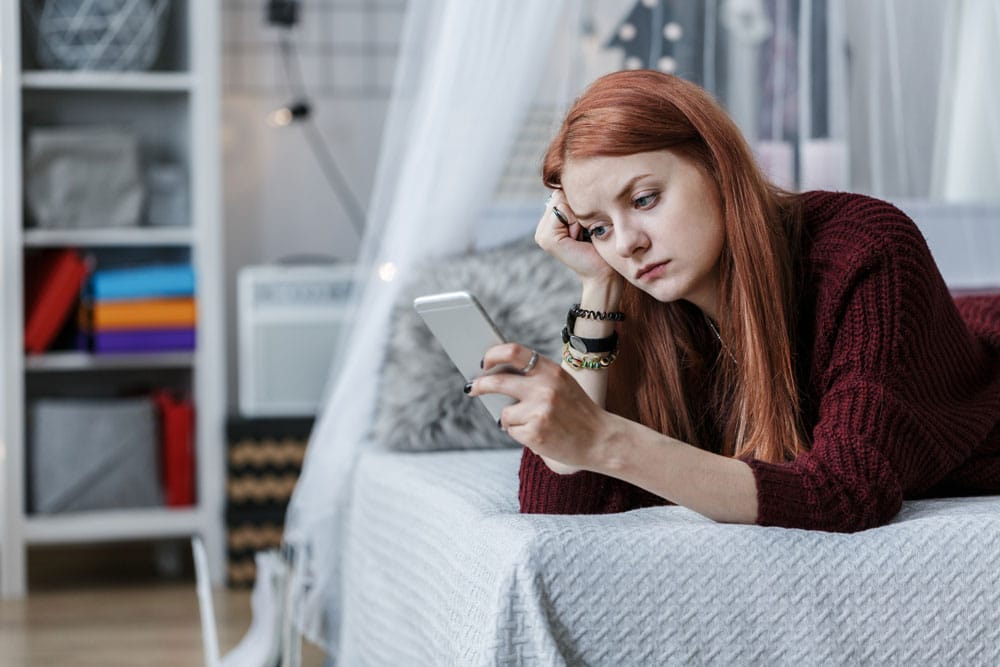By Wesley Gallagher
Decades ago, “mental health” was a term left to doctors in facilities. Words like “depression” and “anxiety” were rarely used, let alone accepted and understood outside of medical environments. We’ve come a long way in recent years as awareness has increased, and we’ve realized as a society that it’s perfectly normal to struggle with mental health issues.
Celebrities and social media have played a large role in the normalization of mental illness. Kanye West is open about his diagnosis of bipolar disorder, and singer Demi Lovato has been candid about her struggles with depression, suicidal thoughts, and drug abuse. Even mental health professionals have social media accounts where they share information and advice.
The fight for mental health awareness has been a long one, and talking about mental health openly is one of the best ways to raise awareness. Unfortunately, one of the dangers of social media is that awareness can easily turn to glamorization. With all this talk of mental health online, it seems reasonable to ask, Has it become popular to be depressed?
Have We Glamorized Depression?
Demi Lovato has depression. It’s wonderful that she’s sharing this with the world, as many people who struggle with their own mental health issues feel validated when they know they are not alone. If a high-profile celebrity can be honest about her mental health, maybe I can too. That’s the goal of awareness, right?

But Demi Lovato also has 116 million Instagram followers and an account full of glamorous pics, which can really blur the line between awareness and trendiness. The trouble with social media is that the goal isn’t mere honesty; the goal is likes, followers, and popularity.
So, while an influencer posting about her mental health can be seen as raw honesty, it may also be just one more way to gain a following, or it may be interpreted that way by others who are looking for likes on their own posts. If Demi Lovato has thousands of likes on her posts about depression, I wonder how many likes I could get on mine?
In fact, an article in The Atlantic explores an entire subculture on social media that glamorizes mental illness, which can be particularly alluring and damaging to impressionable teens and adolescents. There’s a fine line between a post that brings awareness to mental illness and one that makes it chic. “Black and white photographs of mystical emaciated women who stare off into the distance put psychological torment and beauty on the same page,” writes Anne-Sophie Bine, who laments the thousands of images and blogs online that distort depression into a sort of art.
The Dangers of the “Depressed Aesthetic”
This “depressed aesthetic” on social media is turning a serious clinical diagnosis into something almost desirable, especially for young people, who are often looking for acceptance or a sense of belonging. If they are sad and post about it, and they get positive responses or commiseration, that can feel like acceptance. And if they find a whole group of people who talk about how depressed or anxious they are all the time, that can feel like belonging.
This “depressed aesthetic” on social media is turning a serious clinical diagnosis into something almost desirable, especially for young people, who are often looking for acceptance or a sense of belonging.
“The online cultivation of beautiful sadness is easy to join,” writes Bine. “Anyone can take a picture, turn it black and white, pair it with a quote about misunderstood turmoil, and automatically be gratified with compassion and pity.” Northwestern Memorial Hospital’s Chief Psychologist Dr. Mark Reinecke adds that it’s during the vulnerable years when adolescents are seeking self-affirmation and recognition that the “new, easy promise” of being seen as strong, beautiful, and mysterious by followers can be very tempting. Unfortunately, this can lead to more teenagers believing they are depressed, or even feeling more depressed.
Another danger of making depression and mental health struggles an aesthetic is that these terms are easily misconstrued. People, especially teens and adolescents, may use the term, “depressed” when they are really just sad. Or, they may say they have “anxiety” when they’re really just nervous about schoolwork. When clinical diagnoses get thrown around as mere emotions or temporary states of mind, the seriousness of true anxiety and depression is diminished, and misinformation abounds.
As Sage Lucero, who struggles with depression and suicidal thoughts, writes in an article for Medium.com, depression doesn’t have an aesthetic. “Having depression doesn’t mean you look sad all the time, or even feel sad,” she writes. “People can be high-functioning throughout most of their lives, and then fall into a depressive state when they’re at home or a more private area of their lives.” In other words, depression is a serious mental illness, not an Instagram filter or a meme.

Feeling Sad or Depressed vs. Clinical Depression
Everyone feels sad sometimes, and many people feel extremely miserable or even depressed from time to time. In fact, most of us probably felt down or depressed at some point during the last year or two due to the pandemic. Life is hard, and there will be times when we feel like it’s too much. Eating and sleeping patterns may change, and it may be harder to get to work or enjoy spending time with friends.
It’s important to realize, however, that there is a difference between occasionally feeling depressed and having true clinical depression. Clinical depression is a medical diagnosis that requires treatment in the form of therapy or medication (or both), and it shouldn’t be passed off as just being really sad.
According to the National Institute of Mental Health, symptoms of clinical depression include the following:
- Persistent sadness, anxiousness, or “emptiness”
- Feelings of hopelessness, guilt, worthlessness, or helplessness
- Irritability or restlessness
- Loss of interest in hobbies and activities
- Decreased energy
- Changes in sleeping habits
- Changes in eating habits or weight
- Difficulty concentrating or making decisions
- Thoughts of death or suicide
- Untreatable headaches, cramps, or digestive problems
If you are experiencing any of these symptoms on a regular basis, it’s important to seek advice from a medical professional to get the help you need. Depression, like any mental health issue, is not something you should just power through or try to address on your own.
How to Get Help
If you need someone to talk to, Meadows Behavioral Healthcare has a staff of highly trained mental health professionals who can help you decide what type of care would be best for your specific situation. We specialize in individualized, whole-person care for young adults and adults with mental illness, addiction, and co-occurring disorders, so we will make sure you get the care you need for whatever you’re experiencing. Reach out today to take the first step.

